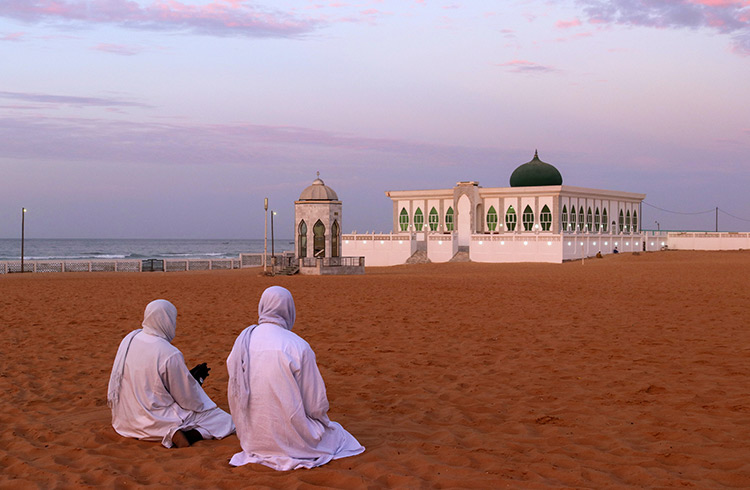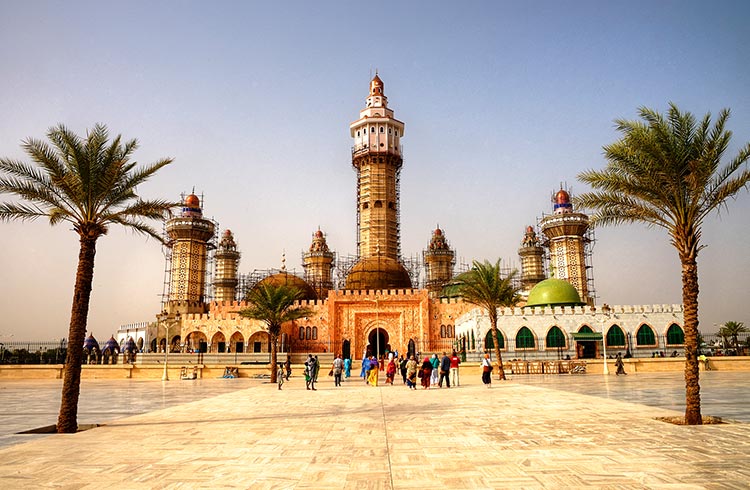Local Laws and Customs in Senegal: Know Before You Go
Public photography, sexual politics and health issues – these are the essential things you need to know about local laws and customs in Senegal before you go.
 Photo © Getty Images/Frans Sellies
Photo © Getty Images/Frans Sellies
When traveling around Senegal, keep in mind that it is a mostly Muslim country. While many Senegalese show incredible tolerance for other religious backgrounds and practices, it is still a conservative society that praises modest dress codes for both men and women.
Women should avoid short skirts and shirts, and men should not wear shorts. Just as a warning, Muslim Senegalese might also be offended by public drunkenness and public displays of affection, so keep it to a minimum.
Photography laws
You cannot take pictures of some buildings, including government institutions, military structures, police stations or embassies.
Can you fly a drone in Senegal?
Flying drones is allowed in Senegal, however, you must never fly a drone in sensitive areas including military or government areas and facilities.
If you're unsure, ask accommodation staff before you set the drone up. It's probably a good idea to keep your valuable camera gear discreet, and the loud noise of a drone isn't the most discreet method of photography.
Carry ID
Travelers are required by law to carry identification with them at all times, and are subject to questioning by police. Authorities are allowed to question suspicious behavior and ask you to produce documents proving your identity.
Drug laws in Senegal
Laws for possession or trafficking of illegal drugs are severe in Senegal. If you are caught with illegal drugs you could be handed a lengthy jail sentence.
LGBTQ+ laws in Senegal
Gays, lesbians and bisexuals may encounter problems in Senegal, particularly where a certain part of the penal code, called Article 319, is concerned. It forbids 'unnatural acts' and states that such offenses are punishable by up to five years in jail or a several-thousand-dollar fine.
Individuals were prosecuted for offenses under this law in 2008 and 2009, including a group of anti-AIDS activists who received eight years in prison for committing 'unnatural acts' and supposed criminal conspiracy. They were later released, but other arrests and charges related to sexual orientation and gender identity took place in 2009.
In 2018 four people were arrested in Dakar after people in the neighborhood shared video footage of them engaging in homosexual acts.
LGBTQ+ travelers should avoid talking openly about their sexual orientation, and keep public displays of affection to an absolute minimum while traveling here.
Health concerns: How to avoid getting sick in Senegal
In terms of health and natural hazards, those with breathing problems should take precautions during the dry season between November and May. The Sahel region of northern Senegal gets very dry during this time and often produces strong winds, called the harmattan, which cause dust storms.
The dust may produce a severe cough in those with respiratory issues. Bring your medication or breathing apparatuses if you suffer from asthma or another breathing issue. Sand from these winds can also affect those without breathing problems, as it has an annoying tendency to get into orifices, eyes and clothing.
There are several diseases you could catch in Senegal, including polio, rabies, typhoid, malaria, Yellow Fever and meningitis. Travelers will want to get the proper vaccinations before embarking on their trip. You will need to carry a Yellow Fever vaccination certificate to enter Senegal, so keep this with your passport upon entry.
The AIDS population is much lower in Senegal than in other African countries.
Insect-borne illnesses include dengue fever, river blindness, filariasis and leishmaniasis. Travelers can develop schistosomiasis from parasites in freshwater.
The Lassa virus, spread through rat urine or feces, is also possible in more traditional dwellings. Highly pathogenic avian influenza (H5N1) can crop up in chicken in Africa, so travelers should use caution when eating this meat and avoid farms.
Senegal's health system has improved in recent decades, but many of the facilities and doctors are located in Dakar. Those traveling to more remote areas may struggle to find health care.
Related articles
Simple and flexible travel insurance
You can buy at home or while traveling, and claim online from anywhere in the world. With 150+ adventure activities covered and 24/7 emergency assistance.
Get a quote
3 Comments
I'm doing this report and ive got the rest but these two questions about Senegal. one of them is: Why should you not be overly enthusiastic about your host’s belongings? ant the other one is: When socializing and conversing, do I look an elder in the eyes? Why or why not?. ive been looking seince I got home from school (which was 4 hours ago). if someone can help asap that would be appreciated. thanks.
HI
@jazmyn You should not be overly enthusiastic about your host's belongings because your host will feel obliged to give to you whatever it is you admire (including clothing).
Normally not looking an elder in the eye is a sign of deference to that person.